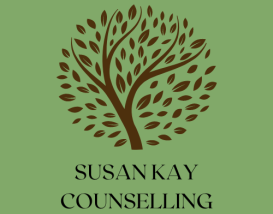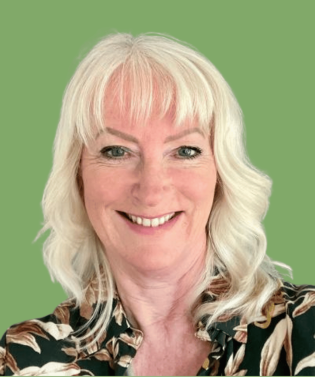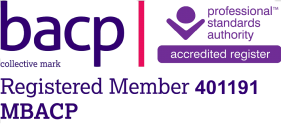Welcome to Susan Kay Counselling
Counselling for adults, couples and young people.
COUNSELLING AND THERAPY SERVICE
Welcome, and thank you for visiting Susan Kay Counselling.
Hi, I'm Susan Kay. I am a fully qualified counsellor and I work with adults, couples, young people and children aged 11 and over, offering both short and longer term therapy.
I work with people across the UK online or by phone. I also offer walk and talk sessions in person around the New Forest, Lymington, Milford on sea, Barton on sea and Christchurch.
I know just how daunting it is to try and find the “right” therapist when you start your counselling journey as I have been there myself.
Here’s a bit about me which might help with gaining more insight into my counselling experiences and goals.
I am passionate about helping people to improve their emotional well-being and overcome the challenges they may be facing and my goal as a counsellor is to provide a calm non-judgemental and supportive environment where you can explore your experiences openly and at your own pace, encouraging a way forward without fear of opinion or judgement.
In my spare time, I enjoy walking my dogs especially on the beach, reading and spending time with family and friends.
I work with people from all walks of life and backgrounds, coming to me with a diverse range of problems. As a fully-qualified counsellor I am a member of the British Association of Counselling and Psychotherapy, and abide by their code of ethics.
Making the decision to see a counsellor is a big step to take - but it can be a positive one. Please read on to find out more about how I could help you.
HOW CAN COUNSELLING HELP?
I draw upon different counselling theories adapting them to the client’s individual needs. I work in a variety of ways with couples, young people and adults and provide sessions online or by telephone.
I also offer walk and talk therapy in my local area. I can help with issues such as :
Stress, anxiety and symptoms of PTSD
Low mood / depression
Relationship issues
Family issues
Emotional wellbeing
Confidence and self-esteem
I have significant experience and additional training in bereavement and understand the uniquely personal challenges that come with loss and grief. In addition I have extensive experience of domestic abuse issues and working with and safeguarding children and adults.
My Counselling Qualifications and recent Continued Professional Development (CPD)
Level 5 Diploma in Cognitive Behavioural Therapy (CPCAB)
Level 4 Diploma in Therapeutic Counselling (CPCAB)
Working with Young People (Redlands)
Level 3 Certificate in Counselling Studies (CPCAB)
Level 2 Certificate in Counselling Skills (CPCAB)
How to do counselling online: a coronavirus primer (BACP online training)
Exploring suicidal risk with clients (CPD)
Counselling in Schools – MindEd
Walk and Talk Therapy Full Day Workshop (2023)
Working with Anxiety Workshop (2024)
Eating Disorders Full Day Workshop (2024)
Accredited Certificate in Working Therapeutically with Couples (NCTI 2024)
Solution Focused Brief Therapy Workshop (2024)
Affirmative Counselling for GSRD (Gender, sex and Relationship Diversity) NCTI 2025
I hold a current enhanced Disclosure and Barring Service Certificate (DBS)
Professional indemnity and public liability insurance.
Attend regular supervision to monitor my practice and professional work.
Attend Regular CPD
Registered Member 401191 of the BACP (British Association of Counsellors and Psychotherapists)
Membership Number 00980804
SPEAK IN CONFIDENCE
I work in a warm, empathic way, supporting you to explore your thoughts and feelings while building confidence and self -esteem. Sessions take place in a calm, non-judgemental environment where you explore your experiences openly, without fear or judgement, whether that be online, by telephone or outside on a walk and talk session.
HOW I CAN HELP
Many people are carrying the weight of their unresolved issue around with them causing them to feel depressed or anxious. Counselling can allow you to gain a better understanding of what is causing your problem. I can help you to manage those feelings or work through them helping you to move forward.
WORKING TOGETHER
By working together, building upon trust and providing the safe space to “offload” I can help you to understand where those thoughts and feelings stem from and how they can affect your way of dealing with the issue, allowing you to move forward in life.

CONTACT ME
Feel free to contact me if you have any questions about how counselling works, or to arrange an initial assessment appointment. This enables us to discuss the reasons you are thinking of coming to counselling, whether it could be helpful for you and whether I am the right therapist to help.
You can also call me on +07597360909 if you would prefer to leave a message or speak to me first. I am happy to discuss any queries or questions you may have prior to arranging an initial appointment.
Please see my privacy policy for more information about the data I, Susan Kay, collect.
All enquires are usually answered within 24 hours, and all contact is strictly confidential and uses secure phone and email services.
FEES & AVAILABILITY
Counselling sessions for individuals are £60 for 50 minutes with the initial assessment taking up to one hour to complete.
Please contact me for details of Couples Counselling availability for an hourly session designed around a time to suit you both.
I can also offer shorter term or "one off" sessions to help you to find ways of managing specific issues that you may be struggling with.
I accept payment via bank transfer.
48 hours’ notice is required should you need to cancel your appointment.
Cancellation after this period incurs the full session rate.
YOU MAY NOT KNOW IT, BUT YOU’VE ALREADY TAKEN THE FIRST STEP...
I understand that it can be scary and confusing making the decision to contact a counsellor or therapist, but in my experience people will struggle with a mental health issue, a personal crisis or problems with a relationship for much longer than is healthy. Sometimes a friend has proved a source of comfort, but this help can only go so far.
Realising that resolving a problem requires something more, means you have actually already taken the first step towards improving your life.
FREQUENTLY ASKED QUESTIONS
Counselling is usually a good way to help with a current problem; something that can be discussed which can help you to manage or resolve the issue within a limited number of sessions. Over a certain number of weeks the understanding of the problem improves and a way forward becomes clear. Therapy often describes work that goes a bit deeper, towards more substantial life issues and problems having a deeper effect on the client’s life. Therapy often requires a long-term approach, so the number of sessions can be open-ended and we would review this regularly.
Which option is most suitable depends on the client and the difficulties they are facing. In some cases counselling works well as an ongoing, longer-term option – or therapy can manage to resolve an issue in just a few sessions.
More information on the different types of therapy can be found on the BACP website.
How long a period of counselling lasts will vary from person to person and depend on the depth of the issues they are facing. For some people a couple of sessions helps to bring their problems into focus, and they feel ready to move forward; other problems may require more of an open-ended approach.
Before we begin any work, together we will agree on the number of sessions we’ll undertake, and at the end of that number review our progress. As long as we both agree further therapy will be of benefit to you, sessions can continue.
I will initially arrange a free brief consultation over the telephone to see if we are the right “fit” to enable us to work together and where I will gain some initial information about what is troubling you.
Moving forward, I will aim to offer you a first appointment, known as an initial assessment, within 1-2 weeks. We would then arrange a set number of counselling sessions to take place at the same time every week, that is convenient for you and where I have availability.
Everything that is said within the counselling room is confidential unless there is concern for your safety, or the safety of others.
The reason for this is that there are some situations whereby I am bound by law to notify an authority; in these cases I may not be able to keep total confidentiality. Breaking confidentiality is very rare though, and only happens after the person concerned has been informed.
Usually I am asked this question by people who are nervous about entering into counselling, or when they are looking for support in coming to see a therapist. This anxiety is understandable, but a key aspect of therapy is that you should feel free to talk about any issues you feel are important to you and having someone else with you who can be connected those issues makes opening-up more difficult, so for this reason I do not see clients accompanied by friends or family.


